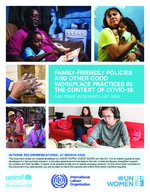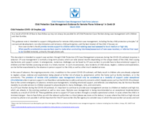Brain Matters: Putting the First Years First
Through interviews with cutting edge researchers, scientists, economists, families and educators, this film explores the so called “miracle years”, a critical period of our lives that no one remembers, in a profound new way – emphasizing how the first few years are the greatest opportunity we have to give children the best start in life.


